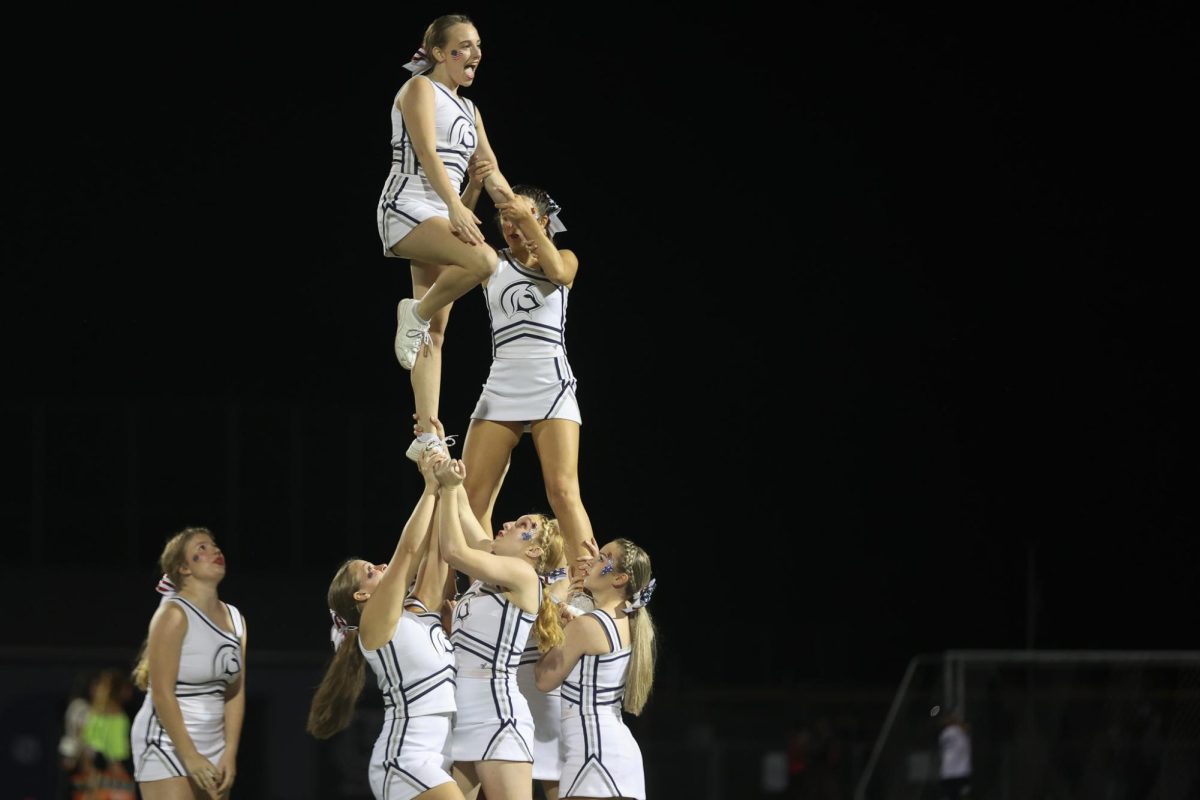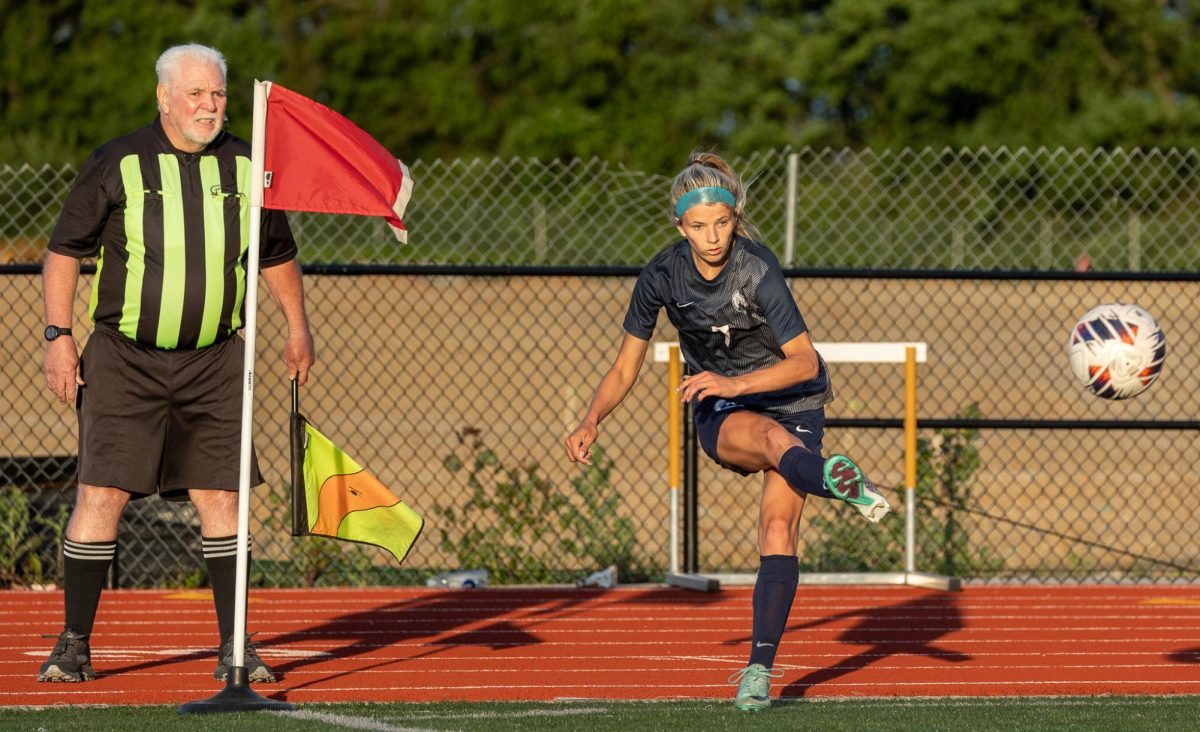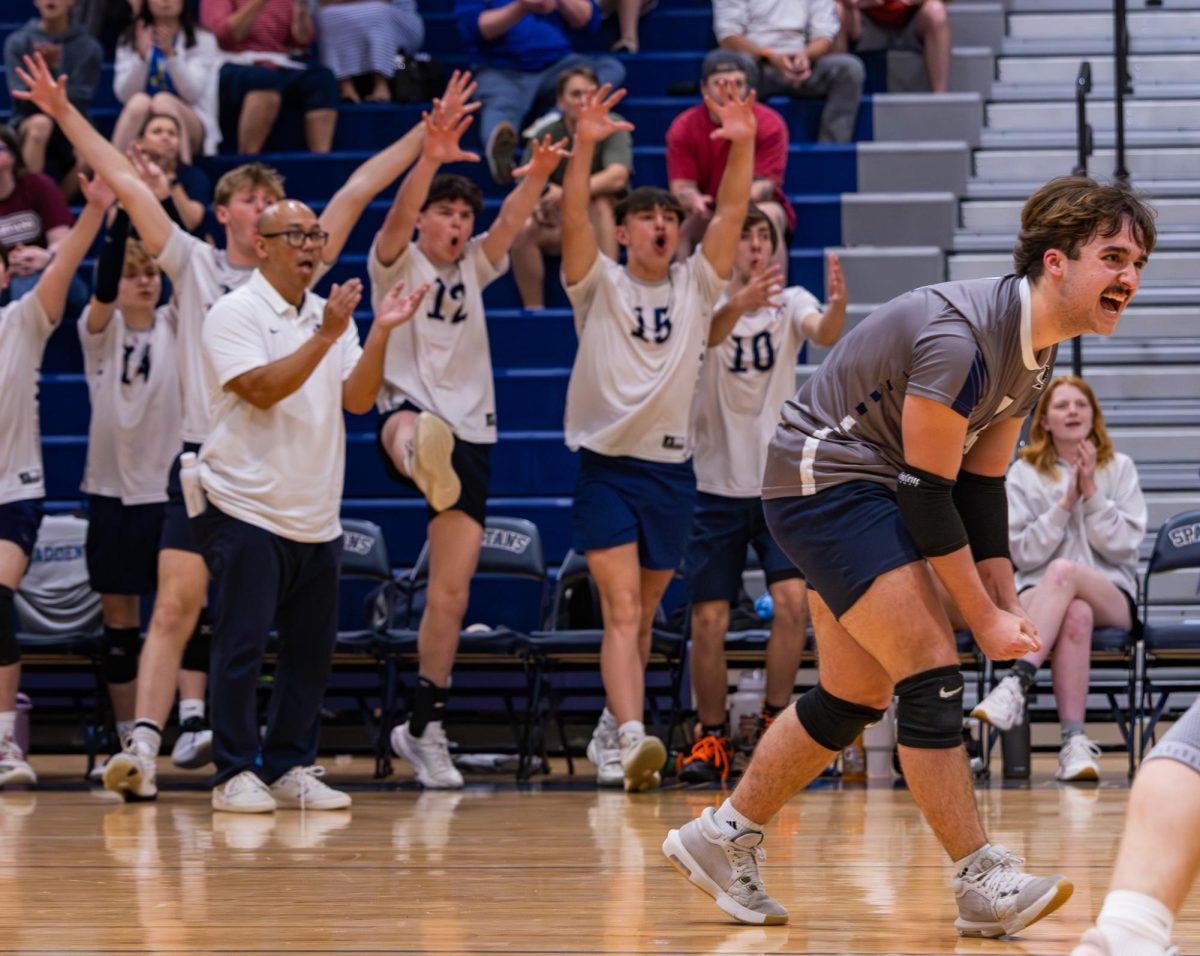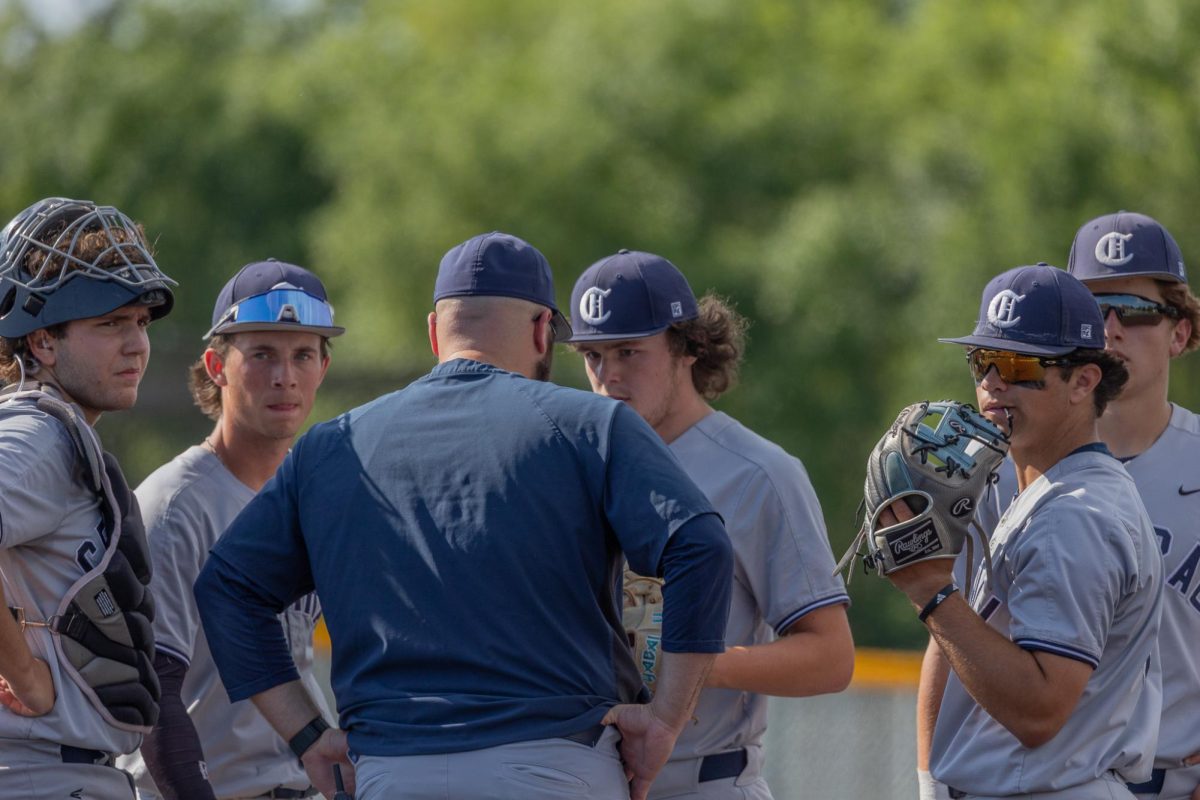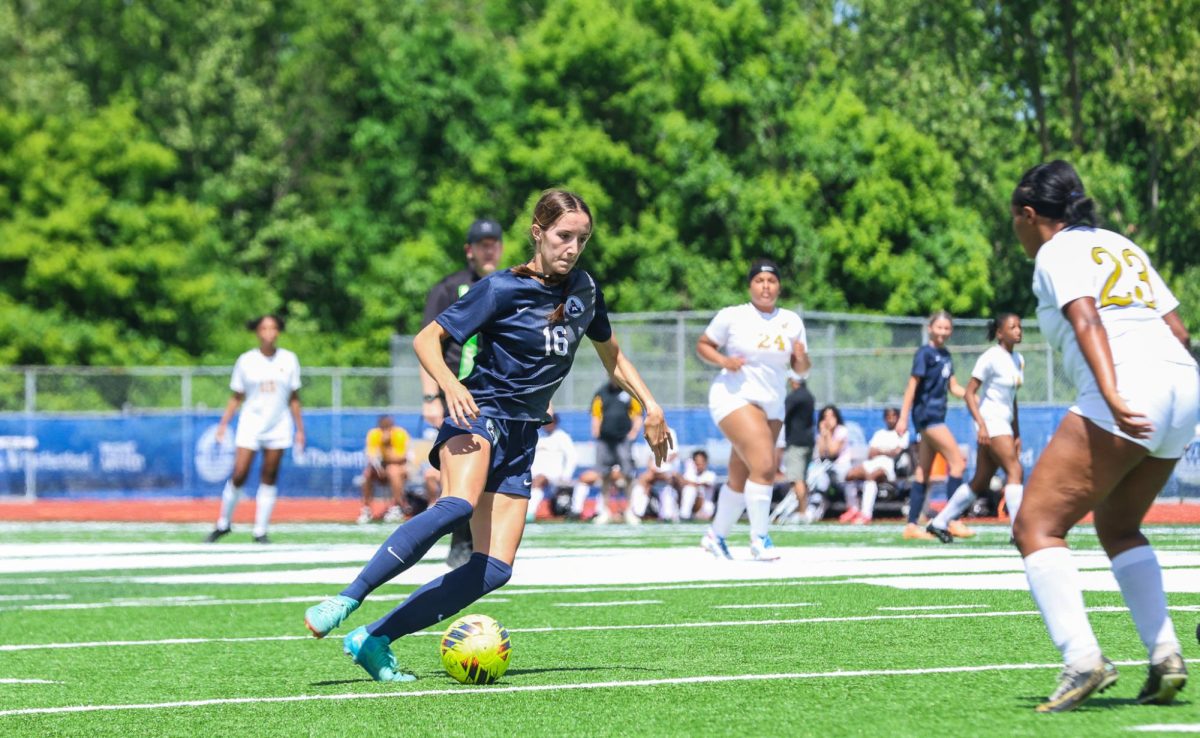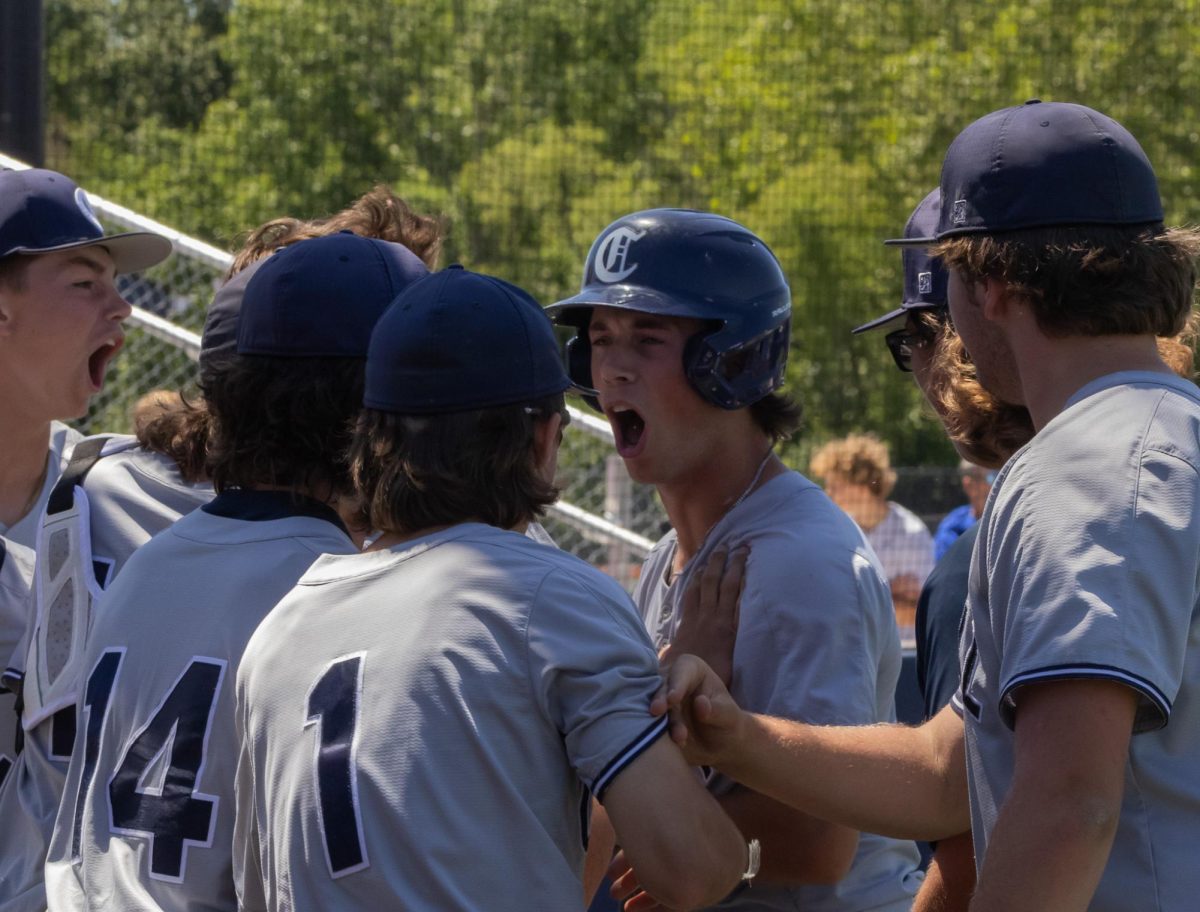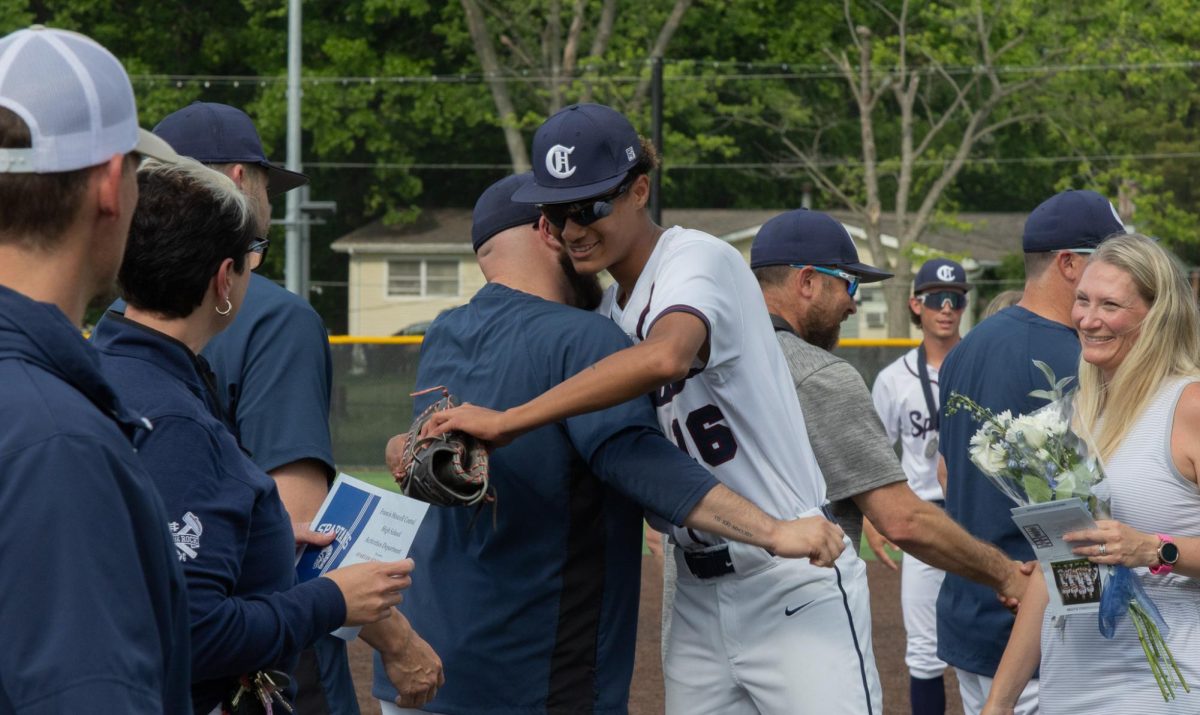Most everyone is familiar with the typical cheerleader stereotype. In most teen movies, the cheerleaders are portrayed as the dumb ones, the shallow ones, the mean ones – or, most commonly, the full trifecta. What may seem like harmless jokes poking fun at overdramatic characters have turned into a plague of demeaning stereotypes cast onto high school cheerleaders. Now, the stereotypes are facing the appropriate backlash from FHC cheerleaders.
Junior Alana Rittgers, a varsity cheerleader, finds there to be far too many examples of cheerleaders being cast in a negative light in movies.
“A lot of the time we’re stereotyped as the bullies of the school, the popular ones,” Rittgers said. “Especially early 2000s movies or Disney Channel movies will show that a lot. [The cheerleaders] are just mean to everybody, the whole ‘I run the school’ attitude.”
Rittgers realized that even one of her favorite movies perpetuates the trite clichés. While watching “The Princess Diaries”, Rittger was disappointed to see cheer represented so poorly.
“The way they portray the cheerleaders is just not accurate,” Rittgers said. “The way they have the cheerleaders run off and make out with their boyfriends when they win a football game, that’s not accurate, that’s not what we do at all.”
Senior Destiny Ragle, co-captain of the varsity cheer team, feels that the way cheer is presented in movies is not only demeaning personally, but also intentionally downplays the athleticism necessary for cheer.
“There are different types of movies that star cheerleaders, and I feel like some actually focus on the tricks, but most focus on stereotypes,” Ragle said. “Most people think cheer is the easiest sport. People think it’s just being cute, but it’s really not, it really takes a lot of work. We run miles all summer, we do all that. It’s so much more than what people think it is.”
The cheerleaders aren’t the only ones that take issue with how cheer is presented in TV shows and movies. Erica McDevitt, head coach of the varsity cheer team, finds fault in the depiction of cheerleaders in the show “Glee” as well as the 2000 cheer-focused movie “Bring it On”.
“[In] Glee, the girls were the popular girls; they were the promiscuous girls. All they cared about was how they looked and what boy they were currently with. They weren’t very smart,” Coach McDevitt said. “‘Bring it On’ was similar. You get a bunch of girls who don’t have focus in school or anything. It’s a cat fight, drama-filled [show]. It just perpetuates those types of things.”
The most upsetting aspect of the stereotypes to Coach McDevitt is that a cheerleader’s response to typical high school drama is so closely scrutinized. Every high schooler deals with some sort of drama, but when a cheerleader is part of it, they’re suddenly thrust into a spotlight.
“All kids in high school and all girls in high school have issues, intrapersonal issues, because that’s part of growing up,” Coach McDevitt said. “And I think sometimes when it’s about girls in cheer it gets put into that [box], like ‘Oh, cheerleaders are just drama, they’re just dramatic people.’”
Due to their frustrations with these cheerleading stereotypes, both the athletes and their coach actively work against the negative labels associated with cheer. As co-captain of the cheer team, Ragle feels that it is partly her responsibility to set the standard for the rest of the team. One stereotype she fights is the “mean girl” cheerleader.
“Our cheerleaders, we’re not mean. We try to be the kindest people we can because so many people have a vision of us,” Ragle said. “No, we actually have a heart and we actually have a life and our life is not perfect.”
Rittgers recounted one conversation Coach McDevitt had with her team about a certain stereotype – one the cheer community has been working against for years.
“Our coach was talking about how, in the past, it was kind of a big stereotype that [cheerleaders] have a lot of boyfriends, [they date] a lot of people,” Rittgers said. “In the world of cheerleading, we’ve had to work to get away from that because that’s not who we are. That’s not what we want to be known for.”
Coach McDevitt considers one of the most harmful stereotypes in cheer to be that cheerleaders are dumb. To counteract this, Coach McDevitt emphasizes the importance of academics for her team.
“I prize grades,” Coach McDevitt said. “[I] really prize grade checks and study hall hours and things like that. Because it is a stereotype that they’re kind of stupid and they don’t do that stuff. So [that’s] one thing that I really push hard.”
Although the team’s dedication to fighting these stereotypes is admirable, the fact that they have to do so frustrates them. Preconceived notions of cheerleading are not the fault of the cheerleaders, but rather the result of formulaic, unoriginal characters popularized in TV and movies. The athleticism and dedication required for any sport is just as prevalent in cheer, and yet time and time again, TV shows and movies make the conscious choice to portray cheerleaders as shallow, ignorant, and cruel. These stereotypes smother the parts of cheer that make it special; the parts that make cheerleaders love their sport.
“All the work that goes into it, the competitions that most people at school have no idea about, and all the teams supporting each other – it’s really awesome to see,” Rittgers said. “The sport of cheerleading is just so much more than the [stereotypes]. And I wish people knew more about that. I wish more people got to come to the competitions and see the competitive side because that is what cheerleading is.”



